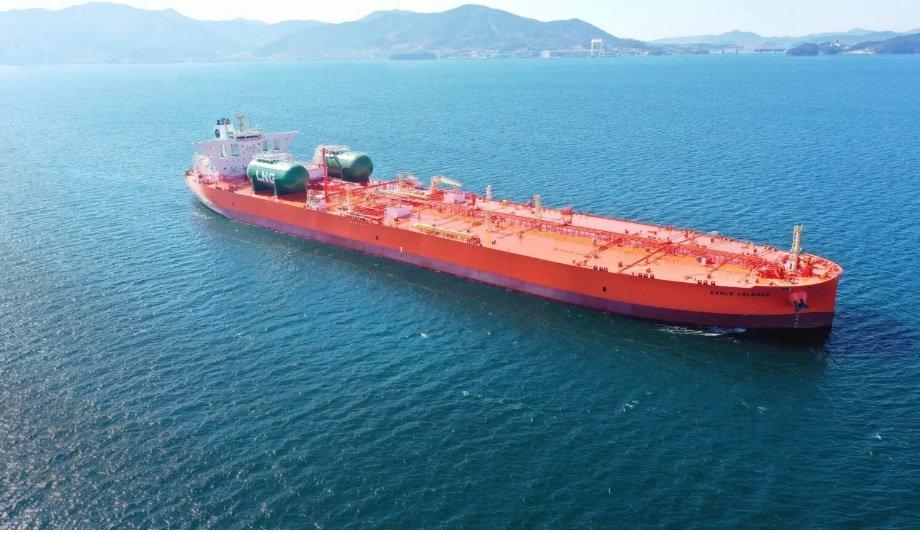At AET, they believe they all have a responsibility to address climate change as individuals and as organisations. That’s why they have been at the forefront of investments in modern, energy-efficient assets to operate their business responsibly and efficiently while reducing greenhouse gas (GHG) emissions.
As a member of the MISC Group, they have made commitments to achieve net-zero emissions across all scopes by 2050. Their future strategic pathway is focused on reducing the fleet’s GHG intensity through deploying cutting-edge energy-efficient technologies and increasing their operational efficiencies.
At the same time, they are also looking to invest in new assets and businesses that support the energy transition to a future low-carbon and renewable energy value chain.
Renewable energy value chain
They are committed to a purposeful and sustainable future and they take their responsibility towards the environment seriously. AET has been actively investing over the past years as a pioneer of dual-fuel vessels collaborating with like-minded partners and stakeholders and will continue to participate in the energy transition and renewable energy-related maritime opportunities.
2022 was an important year for AET with the delivery of eight newbuilds
2022 was an important year for AET with the delivery of eight newbuilds, including two LNG dual-fuel VLCCs (amongst the world’s first) with three more due for delivery later this year. These new assets form a significant step forward in their fleet rejuvenation plan to reduce emissions and reinforce their position as an owner-operator globally.
Achieving zero emissions
They are determined to play a pioneer role in driving decarbonisation as they firmly believe that every player in the maritime ecosystem needs to act now to make the necessary investments for a low carbon future. Since 2022, they have entered into three MOUs for the first ammonia powered zero-emission vessels to be delivered by 2026.
While collaborating with like-minded partners to encourage the use of ammonia as a fuel, they are also looking beyond just fuel. In addition, MISC has also signed three MOUs to explore opportunities on carbon capture and storage solutions in the maritime value chain and unveiled its future-ready Newbuild Floating Production Storage and Offloading (FPSO) Unit, which is poised to be one of the world’s largest and greenest FPSOs.
The focus is on overall emission reduction solutions that are sustainable long-term as decarbonisation and delivering net-zero will be through multiple energy pathways.
Multiple energy pathways
Their approach to sustainability and climate change goes beyond compliance and applies across the value chain
Their approach to sustainability and climate change goes beyond compliance and applies across the value chain, from the active support of the Board and senior leadership team, to employees, customers, and other stakeholders. New technologies and fuels also bring new challenges and risks.
With their people at the heart of the operations, they are fully committed to the safe adoption, training, reskilling and upskilling of their staff at sea and onshore as there can’t be any compromises on health and safety, and part of the commitment to achieving a generative HSSE culture is to safeguard them.
Ever-increasing speed
Capt. Rajalingam Subramaniam, MISC President & Group CEO and AET Chairman, said, “We at MISC Group are cognisant that we must adapt to a world changing at an ever-increasing speed. It is imperative that we accelerate our own transformation as the world around us changes rapidly, and at the same time collaborate purposefully and equitably.”
He adds, “There is a great deal more to do! By coming together, the maritime sector will be able to build new sustainability pathways that will benefit both the industry and future generations.”










